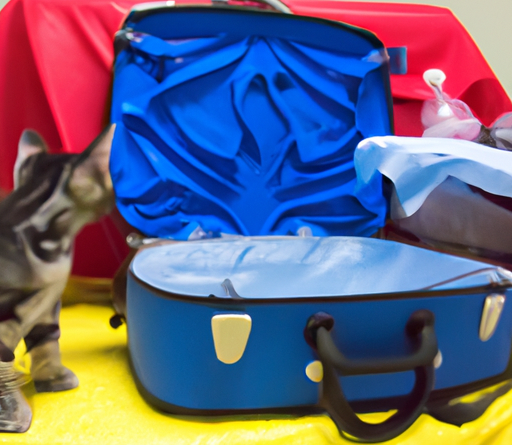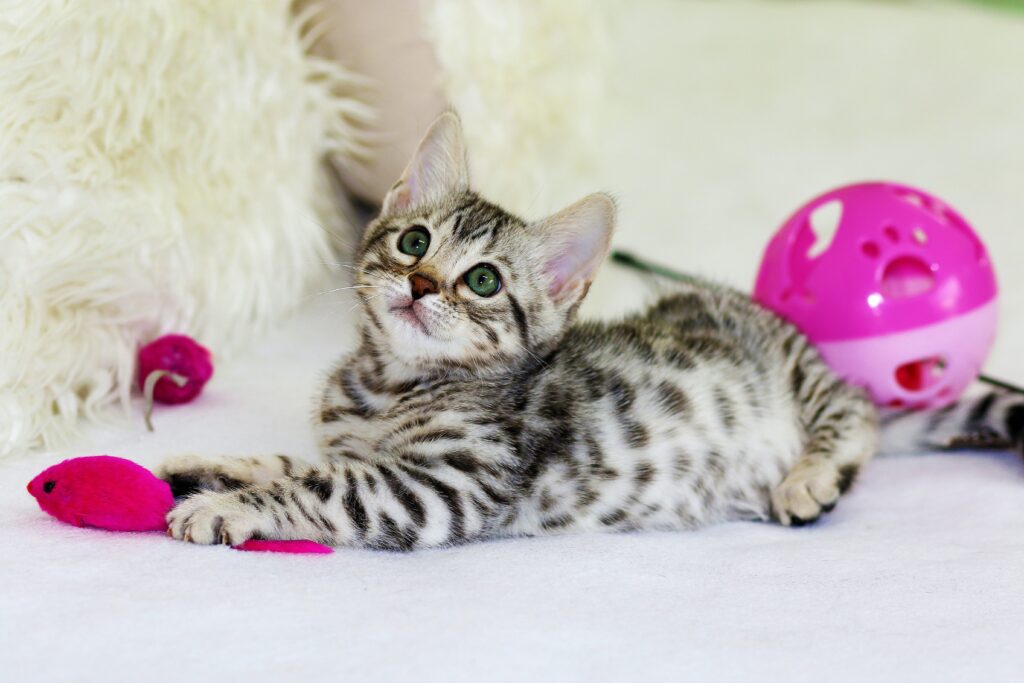
Taking care of your furry friend’s health is a top priority, and as a responsible cat owner, you may find yourself wondering how often should you take your cat to the veterinarian. Regular veterinary check-ups are crucial for maintaining your cat’s well-being and preventing any potential health issues. Whether it’s for routine vaccinations, dental examinations, or overall health assessments, scheduling regular visits with your veterinarian will not only ensure your cat’s longevity but also provide you with peace of mind. So, let’s explore the recommended frequency of veterinary visits and keep your feline friend happy and healthy. Taking your cat to the veterinarian regularly is essential for maintaining their overall health and well-being. Regular vet visits provide preventive care, vaccinations, dental health checks, parasite prevention, and early disease detection. In this article, we will explore the reasons for regular vet visits and discuss the specific care needed for kittens, adult cats, senior cats, as well as situational visits. We will also delve into the factors that determine how often you should visit the vet.

Table of Contents
Reasons for Regular Vet Visits
Preventive Care
Routine vet visits are crucial for preventive care. During these visits, your veterinarian will conduct a comprehensive examination to assess your cat’s overall health. They will check your cat’s weight, body condition, eyes, ears, nose, mouth, heart, lungs, and abdomen for any potential issues. Regular preventive care visits allow your vet to catch any problems early on and provide appropriate treatment.
Vaccinations
Vaccinations are an essential part of keeping your cat healthy. Kittens receive a series of vaccinations starting at around 8 weeks of age to protect them against various diseases such as feline panleukopenia, calicivirus, and rhinotracheitis. Adult cats require regular vaccination updates to ensure they remain protected. Your veterinarian will recommend a vaccination schedule tailored to your cat’s specific needs.
Dental Health
Just like humans, cats can develop dental issues such as plaque, tartar, and gum disease. Regular dental check-ups at the vet can help identify and prevent these problems before they become severe. During these visits, your vet will examine your cat’s teeth, clean them if necessary, and provide advice on home dental care.
Parasite Prevention
Parasites such as fleas, ticks, and intestinal worms can cause various health problems in cats. Regular vet visits allow for parasite prevention and monitoring. Your veterinarian will recommend and administer appropriate preventive medications to keep your cat safe from these pesky parasites.
Early Disease Detection
Regular vet visits play a key role in the early detection of diseases in cats. Cats are masters at hiding signs of illness, and by the time symptoms become apparent, the disease may have already progressed. Routine check-ups help your vet detect any underlying health issues before they become serious. Early disease detection can greatly improve prognosis and treatment outcomes.
Kitten Care
Initial Wellness Exam
When you bring home a new kitten, it is essential to take them to the vet for an initial wellness exam. This exam allows the vet to evaluate the kitten’s overall health and detect any potential problems. The vet will check for congenital abnormalities, signs of parasites, and ensure that the kitten is growing and developing appropriately.
Vaccination Schedule
Kittens require a series of vaccinations to protect them from common infectious diseases. Your veterinarian will create a vaccination schedule for your kitten based on factors such as age, lifestyle, and the prevalence of certain diseases in your area. It is important to follow this schedule to ensure your kitten receives the necessary protection.
Spaying or Neutering
Spaying or neutering your kitten has several benefits, including preventing unwanted litters, reducing the risk of certain cancers, and curbing undesirable behaviors. Your veterinarian will discuss the ideal time to spay or neuter your kitten based on their age and overall health.
Parasite Control
Kittens are more susceptible to parasites, so regular parasite control is crucial. Your vet will recommend appropriate preventive medications to protect your kitten against fleas, ticks, intestinal worms, and ear mites. Regular check-ups will ensure that the preventive measures are working effectively.
Behavior Advice
Kittens may exhibit various behaviors that require guidance and training. Your veterinarian can provide valuable advice on litter box training, scratching behavior, socialization, and playtime. Regular check-ups give you the opportunity to discuss any behavioral concerns and receive expert guidance.
Adult Cat Care
Annual Wellness Exam
Once your kitten reaches adulthood, it is recommended to take them for an annual wellness exam. During this exam, your vet will evaluate your cat’s overall health, check for any changes since the last visit, and address any concerns you may have. This yearly check-up is essential for maintaining your cat’s wellbeing.
Vaccination Updates
Adult cats require regular vaccination updates to ensure continued protection against infectious diseases. Your veterinarian will recommend a vaccination schedule based on your cat’s lifestyle, exposure risk, and prevalence of diseases in your area. Staying up to date on vaccinations is crucial for your cat’s health.
Dental Check-ups
Dental health is important throughout a cat’s life. Regular dental check-ups at the vet can help identify dental problems such as tooth decay, gum disease, and oral infections. Your veterinarian will examine your cat’s teeth, provide professional cleaning if necessary, and offer advice on home dental care.
Preventive Medications
Adult cats may require preventive medications for flea and tick control, heartworm prevention, and intestinal parasite protection. Your vet will recommend the appropriate medications based on your cat’s lifestyle and risk factors. Regular check-ups ensure that your cat remains protected against these parasites.
Nutritional Counseling
Proper nutrition is vital for a cat’s overall health. During your cat’s annual wellness exam, your veterinarian can provide nutritional counseling tailored to your cat’s specific needs. They can recommend a balanced diet and address any dietary concerns or questions you may have.
Senior Cat Care
Biannual Wellness Exam
As cats age, their health needs change, and more frequent vet visits become necessary. It is recommended to take your senior cat for biannual wellness exams. These visits allow your vet to monitor your cat’s health closely, detect age-related conditions, and provide appropriate care.
Age-related Conditions
Senior cats are more prone to developing age-related conditions such as arthritis, kidney disease, and dental issues. Regular vet visits enable early detection and intervention, enhancing your cat’s quality of life. Your veterinarian can suggest management strategies and treatments to address these age-related conditions.
Weight Management
Obesity is a common issue among senior cats and can lead to various health problems. Your vet will evaluate your cat’s body condition and weight during wellness exams. They can provide guidance on proper nutrition, portion control, and exercise to help your senior cat maintain a healthy weight.
Mobility Issues
Arthritis and other mobility issues are common in older cats. Your veterinarian can assess your cat’s mobility during wellness exams and recommend appropriate pain management strategies, supplements, or physical therapy to improve their comfort and mobility.
Medication Adjustments
Senior cats may require medications to manage chronic conditions or alleviate age-related discomfort. Regular vet visits allow your veterinarian to monitor your cat’s response to medications and adjust dosages if necessary. They can also recommend any additional medications or treatments to support your senior cat’s wellbeing.

Situational Visits
Illness or Injury
Sometimes, unexpected illnesses or injuries may occur, necessitating a visit to the vet outside the regular check-up schedule. If your cat displays symptoms such as vomiting, diarrhea, lethargy, breathing difficulties, or sustained injuries, it is important to seek veterinary care promptly. Immediate attention can make a significant difference in the outcome of an illness or injury.
Behavioral Changes
If your cat exhibits sudden or significant behavioral changes, it may indicate an underlying health issue or emotional distress. Consulting your veterinarian can help determine the cause of these changes and provide appropriate guidance or intervention.
Grooming Needs
Certain cat breeds require regular grooming to maintain their coat’s health and prevent matting. If you are unsure about proper grooming techniques or need assistance with grooming your cat, your vet can provide guidance or recommend professional groomers.
Traveling with Your Cat
If you plan to travel with your cat, especially to a different region or country, it is advisable to consult your veterinarian. They can provide guidance on necessary vaccinations, health certificates, and any precautions specific to your destination. Your vet can also suggest strategies to help make the travel experience less stressful for your cat.
End-of-life Care
As difficult as it may be, end-of-life care is an important consideration for pet owners. When your cat reaches the end stages of their life, consulting with your veterinarian can help ensure their comfort and dignity. Your vet can provide guidance on pain management, quality of life assessments, and euthanasia if necessary.
Determining Visit Frequency
Individual Health Factors
Individual health factors should be considered when determining how often you should take your cat to the vet. Cats with chronic health conditions may require more frequent visits to monitor their condition and adjust treatments accordingly.
Age and Life Stage
Kittens, adult cats, and senior cats have different health needs at each life stage. Kittens require multiple vet visits for vaccinations and early health monitoring, while senior cats benefit from more regular check-ups to manage age-related conditions.
Breed or Genetic Predispositions
Certain cat breeds are prone to particular health issues or genetic predispositions. If you have a purebred cat, it may be necessary to schedule more frequent visits to monitor and address breed-specific health concerns.
Environment and Lifestyle
The environment in which your cat lives and their lifestyle can impact their health needs. Indoor cats might have different risks and requirements compared to outdoor cats. Discussing your cat’s lifestyle with your vet can help determine the appropriate visit frequency.
Veterinarian Recommendations
Finally, your veterinarian’s recommendations should guide the frequency of your cat’s visits. They have a comprehensive understanding of your cat’s medical history, health risks, and specific needs. Following their advice ensures that your cat receives the optimal care.
In conclusion, regular vet visits are essential for cat owners who want to ensure the health and well-being of their feline companions. Preventive care, vaccinations, dental health checks, parasite prevention, and early disease detection are crucial components of these visits. By providing comprehensive care at each life stage and addressing situational needs, you can help your cat lead a long, happy, and healthy life. Remember to consider individual health factors, age, breed, environment, lifestyle, and veterinarian recommendations when determining how often you should take your cat to the veterinarian. Your friendly veterinarian is there to support you and provide the best care for your beloved cat.

